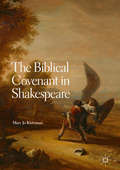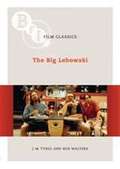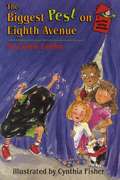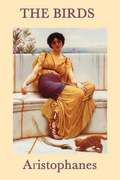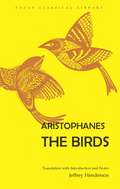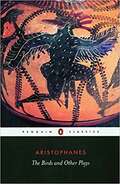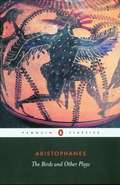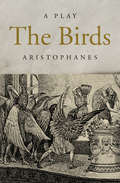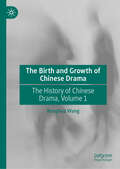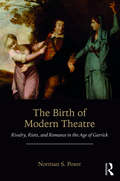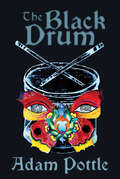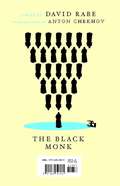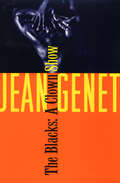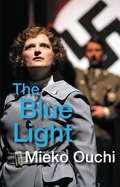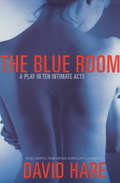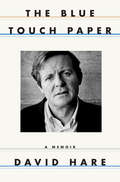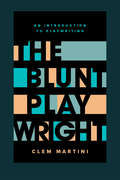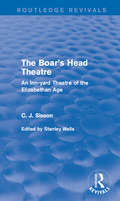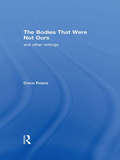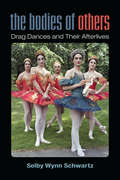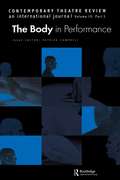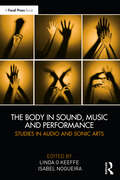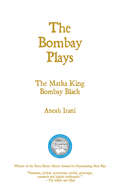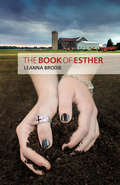- Table View
- List View
The Biblical Covenant in Shakespeare
by Mary Jo KietzmanThe theo-political idea of covenant—a sacred binding agreement—formalizes relationships and inaugurates politics in the Hebrew Bible, and it was the most significant revolutionary idea to come out of the Protestant Reformation. Central to sixteenth-century theology, covenant became the cornerstone of the seventeenth-century English Commonweath, evidenced by Parliament’s passage of the Protestation Oath in 1641 which was the “first national covenant against popery and arbitrary government,” followed by the Solemn League and Covenant in 1643. Although there are plenty of books on Shakespeare and religion and Shakespeare and the Bible, no recent critics have recognized how Shakespeare’s plays popularized and spread the covenant idea, making it available for the modern project. By seeding the plays with allusions to biblical covenant stories, Shakespeare not only lends ethical weight to secular lives but develops covenant as the core idea in a civil religion or a founding myth of the early-modern political community, writ small (family and friendship) and large (business and state). Playhouse relationships, especially those between actors and audiences, were also understood through the covenant model, which lent ethical shading to the convention of direct address. Revealing covenant as the biblical beating heart of Shakespeare’s drama, this book helps to explain how the plays provide a smooth transition into secular society based on the idea of social contract.
The Big Lebowski (Bfi Film Classics Ser.)
by J. M. Tyree Ben Walters<P>Since its release nearly ten years ago, The Big Lebowski has become a cult classic with a worldwide following, having survived the baffled reaction of many mainstream critics.<P> Its fans tend to be fanatical, congregating at 'Lebowski Conventions' in bowling alleys across American and Britain, and even dressing up as characters from the film. <P>Among the funniest films of the last twenty-five years, and one of the high-water marks of 1990s genre recycling and pastiche, The Big Lebowski also littered with playful and subversive references to film history, especially to Raymond Chandler's world of hardboiled detective classics and the world of film noir.<P> The Big Lebowskiis the rarest kind of film, a comedy whose jokes become funnier with repetition. The same goes for its multitudinous jukebox-like references to other films, many of which open up vistas for intertextual interpretation.<P> Underneath the film's breakneck pacing and foul-mouthed characters, a farcical collection of flakes, losers, and phonies, is a surprisingly humane account of what fools we mortals be. <P>It is one of the oddest buddy films ever made, with extraordinary performances by Jeff Bridges and John Goodman.<P> In this study, The Big Lebowskiis set into the context of 1990s Hollywood cinema, anatomised for its witty relationship with the classics which it satirises, and discussed in terms of its key theme: the hopeless flailing of ridiculously unmanly men in the world of discombobulated, mixed-up, or put-on identities that is Los Angeles.
The Biggest Pest on Eighth Avenue
by Laurie LawlorAn amateur horror show scares no one except its creators until a frightful actor appears on the scene.
The Birds
by AristophanesThis portrayal of a flawed utopia called Cloudcuckooland is an enchanting escape into the world of free-flying fantasy that explores the eternal dilemmas of man on earth.
The Birds
by Aristophanes Jeffrey HendersonThis is an English translation of Aristophanes’ greatest comedy the Birds and is the story of birds taking control of the government. Includes background material on the historical and cultural context of this work, suggestions for further reading, and notes. Focus Classical Library provides close translations with notes and essays to provide access to understanding Greek culture.
The Birds and Other Plays
by Aristophanes David Barrett Alan SommersteinOffering a window into the world of ordinary Athenians, Aristophanes' The Birds and Other Plays is a timeless set of comedies, combining witty satire and raucous slapstick to wonderful effect. The plays in this volume all contain Aristophanes' trademark bawdy comedy and dazzling verbal agility <p><p> In The Birds, two cunning Athenians persuade the birds to build the utopian city of 'Much Cuckoo in the Clouds' in the sky, blockading the Olympian gods and installing themselves as new deities. The Knights is a venomous satire on Cleon, a prominent Athenian demagogue, who vies with a humble sausage-seller for the approval of the people; while The Assembly-Women deals with the battle of the sexes as the women of Athens infiltrate the all-male Assembly in disguise. The lengthy conflict with Sparta is the subject of Peace, inspired by the hope of a settlement in 421 BC, and Wealth reflects on the economic catastrophe that hit Athens after the war. <p><p> These lively translations by David Barrett and Alan H. Sommerstein capture the full humour of the plays. The introduction examines Aristophanes' life and times, and the comedy and poetry of his works, and this edition also includes an introductory note for each play. <p><p> For more than seventy years, Penguin has been the leading publisher of classic literature in the English-speaking world. With more than 1,700 titles, Penguin Classics represents a global bookshelf of the best works throughout history and across genres and disciplines. Readers trust the series to provide authoritative texts enhanced by introductions and notes by distinguished scholars and contemporary authors, as well as up-to-date translations by award-winning translators.
The Birds and Other Plays
by AristophanesThe plays in this volume all contain Aristophanes' trademark bawdy comedy and dazzling verbal agility. In THE BIRDS, two frustrated Athenians join the birds to build the utopian city of 'Much Cuckoo in the Clouds'. THE KNIGHTS is a venomous satire on Cleon, a prominent Athenian demagogue, while THE ASSEMBLY WOMEN deals with the battle of the sexes as the women of Athens infiltrate the all-male Assembly in disguise. The lengthy conflict with Sparta is the subject of PEACE, inspired by the hope of a settlement in 421 BC, and WEALTH reflects on the economic catastrophe that hit Athens after the war.
The Birds: A Play
by AristophanesBirds rule the sky—and man—in this entertaining work by the Ancient Greek playwright known for Lysistrata and The Clouds. This award-winning comedy—first performed in Greece in 414 BC—remains a delightful read even after two millennia. As the birds of Athens express their frustration about sharing a realm with humans, they hatch a plan to build their own empire in the sky: Cloud-cuckoo-land. Soon they are exercising their power as they form a barrier between mortals and the Olympians—and declare themselves the new gods.
The Birth and Growth of Chinese Drama: The History of Chinese Drama, Volume 1
by Ronghua WangThis is a book of the history of China’s contemporary drama. It provides a panorama of the ups and downs of Chinese drama. It tells how this western art has been adapted to the Chinese context and what it has offered to the world of theatre. It illustrates who the outstanding playwrights are and what great drama they have produced. The book shows how Chinese traditional culture has been blended with this western art form. The book also demonstrates how deeply drama is involve in Chinese politics and daily life.
The Birth of Modern Theatre: Rivalry, Riots, and Romance in the Age of Garrick
by Norman S. PoserThe Birth of Modern Theatre: Rivalry, Riots, and Romance in the Age of Garrick is a vivid description of the eighteenth-century London theatre scene—a time when the theatre took on many of the features of our modern stage. A natural and psychologically based acting style replaced the declamatory style of an earlier age. The theatres were mainly supported by paying audiences, no longer by royal or noble patrons. The press determined the success or failure of a play or a performance. Actors were no longer shunned by polite society, some becoming celebrities in the modern sense. The dominant figure for thirty years was David Garrick, actor, theatre manager and playwright, who, off the stage, charmed London with his energy, playfulness, and social graces. No less important in defining eighteenth-century theatre were its audiences, who considered themselves full-scale participants in theatrical performances; if they did not care for a play, an actor, or ticket prices, they would loudly make their wishes known, sometimes starting a riot. This book recounts the lives—and occasionally the scandals—of the actors and theatre managers and weaves them into the larger story of the theatre in this exuberant age, setting the London stage and its leading personalities against the background of the important social, cultural, and economic changes that shaped eighteenth-century Britain. The Birth of Modern Theatre brings all of this together to describe a moment in history that sowed the seeds of today’s stage.
The Black Drum
by Adam PottleHailed as the world’s first Deaf musical—told entirely in American Sign Language and Signed Music—The Black Drum revolves around Joan and her journey to healing after the death of her wife, Karen. Since Karen’s passing, Joan has been unable to share her music with the world, anguish snatching her desire to perform. Joan’s grief pulls her into a bizarre, black-and-white world where her two beautiful tattoos come to life as guides and together they confront a monster called the Minister. But the only way to defeat the Minister and begin to heal is for Joan to embrace her own voice.An epic fantasy about grief and healing, The Black Drum questions the concept of music we are conditioned to believe, suggesting that music is not just something you hear, it is something you see and feel.
The Black Monk and The Dog Problem: Two Plays
by David RabeThe Black Monk has been called a singular "collaboration" between two writers: Anton Chekhov and David Rabe. Based on Chekov's novella of the same name, Rabe's brilliant stage adaptation tells the story of Kovrin, the young philosophy student who returns from Moscow to the estate owned by Pesotsky, where he spent his youth. Kovrin and Pesotsky's daughter, Tanya, soon fall in love and plan to marry. But the appearance of an emissary from the unknown -- the black monk -- threatens to have a devastating effect on all of them. Trouble starts in when Teresa tells her brother Joey that this guy Ray did something to her with his dog in bed. Nobody seems to know exactly what happened, but they do know that somebody's got to pay. So what is The Dog Problem? It starts with being born into a world where the wrong thing said to the wrong person ignites a chain reaction of misplaced passions and galloping sentences that race to a deadly conclusion. The playful title is revealed to be a wry pun on the Cartesian mind/body problem, as Uncle Mal, the aging mobster, must face his turn to be the dog in this darkly funny play about men, women, sex, betrayal, and ghosts. Vastly different in their aesthetic, these two recent and highly praised plays embody all of the celebrated hallmarks of David Rabe's writing and art: unflinchingly honest and perceptive themes, starkly luminous dialogue, and the unsettling humor that have made him an icon of the American theater for more than forty years.
The Blacks: A Clown Show (Genet, Jean Ser.)
by Jean GenetGenet has strong claims to be considered the greatest living playwright. His plays constitute a body of work unmatched for poetic and theatrical power which reaches, in at least two of the plays The Balcony and The Blacks a pitch of inspiration and mastery.” Jack Kroll, Newsweek In form, it flows as freely as an improvisation, with fantasy, allegory and intimations of reality mingled into a weird, stirring unity. . . . Genet’s investigation of the color black begins where most plays of this burning theme leave off. . . . This vastly gifted Frenchman uses shocking words and images to cry out at the pretensions and injustices of our world. . . . One of the most original and stimulating evenings Broadway or Off Broadway has to offer.” Howard Taubman, The New York Times
The Blue Light
by Mieko OuchiLeni Riefenstahl, one hundred years old, is in the office of a young female Hollywood studio executive. Leni’s reason to be there is clear: to make one last desperate pitch to direct her first feature film in fifty years. A thought-provoking contemplation on art, politics, and the seduction of fascism, and a theatrical examination of a woman who danced one perfect dance with the devil and forever changed the way films are made.Leni Riefenstahl was one of the most remarkable and controversial women of the twentieth century. Dancer, actor, photographer, and filmmaker, Riefenstahl caught the eye of Adolf Hitler with her prodigious first film: The Blue Light. A cinematic innovator, her decision to direct Triumph of the Will, got her blacklisted as a filmmaker until her death in 2003 at 101, unrepentant and mostly forgotten.
The Blue Room: A Play in Ten Intimate Acts (Books That Changed the World)
by David HareThe Tony Award–winning playwright and screenwriter delivers &“a witty, contemporary reworking of Arthur Schnitzler&’s nineteenth-century shocker La Ronde&” (The Mail on Sunday, four stars). Arthur Schnitzler described Reigen, his loose series of sexual sketches, as &“completely unprintable,&” and indeed, its premiere in 1921 spurred an obscenity suit. It was only when Max Ophüls made his famous film in 1950 that the work became better known as La Ronde. Now David Hare has reset these circular scenes of love and betrayal in the present day, with a cast of two actors playing a succession of characters whose sexual lives enmesh like a daisy chain. The Blue Room is a brilliant meditation on men and women, sex and social class, actors and the theater. With deft insight about the gap between the sexes, it takes the treacherous Freudian subject of projection and desire and reinvents it in a bittersweet landscape that is both eternal and completely up to date. &“[Hare&’s] play slides up on one insidiously—always suggesting more than they first suggest, planting depth charges in the mind, subtly laying a minefield in the self-confidence of one&’s first impressions.&” —New York Post &“In the jungle of this city, sex is a driving force, a commodity and a need . . . This play could almost be a vividly illustrated Freudian textbook: the erotic drive in action, amoral and ruthless. Hare&’s version is, in the deepest and most essential sense, completely faithful to Schnitzler.&” —The Sunday Times &“Hare—buttressed by Freud and Proust—has turned sexual disappointment into something more interesting, the idea that what we are in love with is part illusion.&” —The Observer
The Blue Touch Paper: A Memoir
by David Hare"Frank, moving, and beguiling, The Blue Touch Paper is the fascinating story of becoming a writer in the 1960s and 70s when Britain was changing even faster than the author."--Joan Didion David Hare has long been one of Britain's best-known screenwriters and dramatists. He's the author of more than thirty acclaimed plays that have appeared on Broadway, in the West End, and at the National Theatre. He wrote the screenplays for the hugely successful films The Hours, Plenty, and The Reader. Most recently, his play Skylight won the 2015 Tony Award for Best Revival on Broadway. Now, in his debut work of autobiography, "Britain's leading contemporary playwright" (Sunday Times) offers a vibrant and affecting account of becoming a writer amid the enormous flux of postwar England. In his customarily dazzling prose and with great warmth and humor, he takes us from his university days at Cambridge to the swinging 1960s, when he cofounded the influential Portable Theatre in London and took a memorable road trip across America, to his breakthrough successes as a playwright amid the political ferment of the '70s and the moment when Margaret Thatcher came to power at the end of the decade. Through it all, Hare sets the progress of his own life against the dramatic changes in postwar England, in which faith in hierarchy, religion, empire, and the public good all withered away. Filled with indelible glimpses of such figures as Alfred Hitchcock, Laurence Olivier, Tennessee Williams, Helen Mirren, and Joseph Papp, The Blue Touch Paper is a powerful evocation of a society in transition and a writer in the making.
The Blunderer
by MolièreMolière was a French playwright who is considered to be one of the greatest comedians in all of Western literature. With classics such as Tartuffe, The School for Wives, and The Misanthrope, Molière is one of the most widely read playwrights in history. This edition of The Blunderer includes a table of contents.
The Blunt Playwright: An Introduction to Playwriting
by Clem MartiniThe Blunt Playwright won’t tell you everything there is to know about playwriting. It won’t even try. What it will do is examine process, structure, dialogue, and character; provide classic and contemporary scenes to study; outline clever exercises to strengthen writing skills; and so much more. Highly regarded and used in schools everywhere, this updated edition cements its place as one of the best resources for playwrights. From organizing the structure of a script to developing characters’ voices, from employing visual effects on stage to writing comedy, or from self-promotion to getting produced and published, this guide has something for everyone, no matter the stage of their career.
The Boar's Head Theatre: An Inn-yard Theatre of the Elizabethan Age (Routledge Revivals)
by C. J. SissonThe Boar’s Head Theatre, first published in 1972, provides an account of one of the Elizabethan inn-yard theatres. It is a reconstruction of considerable importance in our understanding of the performance conditions affecting Elizabethan drama, the mode of presentation and the nature of the audience. C. J. Sisson (1885-1966) was known especially for his research into Elizabethan court cases and the light they can throw on the literature and drama of the period. His discoveries included material on the Elizabethan inn-yard theatres which provides unquestionable evidence of great importance in relation to the evolution of the theatre in England. This book, which has been edited for publication by Stanley Wells, was to have been his major work on the subject. Historians of the theatre of this period will find this book indispensable, and those with a more general interest in the greatest age of English drama will be engrossed by the detailed and intimate glimpses of the theatre world which this story affords.
The Bodies That Were Not Ours: And Other Writings
by Coco FuscoInterdisciplinary artist and writer Coco Fusco is one of North America's leading interpreters of intercultural theory and practice. This volume gathers together her finest writings since 1995 and includes critical essays by Jean Fisher and Caroline Vercoe that interpret her work.Engaging and provocative, these essays, interviews, performance scripts and fotonovelas take readers on a tour of our current multicultural landscape. Fusco explores such issues as sex tourism in Cuba as a barometer of the island's entry into the global economy, Frantz Fanon's theorization of metropolitan blackness, and artistic and net activist responses to the effects of free trade on the Mexican populace. She interviews such postcolonial personnae as Isaac Julien, Hilton Als and Tracey Moffatt. Approaching the dynamics of cultural fusion from many angles, Fusco's satires, commentaries, and sociological inquiries collapse boundaries, and form a sustained meditation on how the forces of globalization impact upon the making of art.
The Bodies of Others: Drag Dances and Their Afterlives (Triangulations: Lesbian/Gay/Queer Theater/Drama/Performance)
by Selby Wynn SchwartzThe Bodies of Others explores the politics of gender in motion. From drag ballerinas to faux queens, and from butoh divas to the club mothers of modern dance, the book delves into four decades of drag dances on American stages. Drag dances take us beyond glittery one-liners and into the spaces between gender norms. In these backstage histories, dancers give their bodies over to other selves, opening up the category of realness. The book maps out a drag politics of embodiment, connecting drag dances to queer hope, memory, and mourning. There are aging étoiles, midnight shows, mystical séances, and all of the dust and velvet of divas in their dressing-rooms. But these forty years of drag dances are also a cultural history, including Mark Morris dancing the death of Dido in the shadow of AIDS, and the swans of Les Ballets Trockadero de Monte Carlo sketching an antiracist vision for ballet. Drawing on queer theory, dance history, and the embodied practices of dancers themselves, The Bodies of Others examines the ways in which drag dances undertake the work of a shared queer and trans politics.
The Body in Performance
by Patrick CampbellLively yet intriguing, The Body in Performance is a varied collection of essays about this much-discussed area. Posing the question "Why this current preoccupation with the performed body?" the collection of specially commissioned essays from both academics and practitioners - in some cases one and the same person - considers such cutting edge topics as the abject body and performance, censorship and live art, the presentation of violence on stage, carnal art, and the vexed issue of mimesis in the theatre. Drawing variously on the work of Franko B., Orlan, Annie Sprinkle, Karen Finley, and Forced Entertainment, it concludes with a creative piece about a 'Famous New York Performance Artist.' Contributors include Rebecca Schneider whose book The Explicit Body in Performance is a key text in this area, and Joan Lipkin, director and writer.
The Body in Sound, Music and Performance: Studies in Audio and Sonic Arts
by Linda O KeeffeThe Body in Sound, Music and Performance brings together cutting-edge contributions from women working on and researching contemporary sound practice. This highly interdisciplinary book features a host of international contributors and places emphasis on developments beyond the western world, including movements growing across Latin America. Within the book, the body is situated as both the site and centre for knowledge making and creative production. Chapters explore how insightful theoretical analysis, new methods, innovative practises, and sometimes within the socio-cultural conditions of racism, sexism and classicism, the body can rise above, reshape and deconstruct understood ideas about performance practices, composition, and listening/sensing. This book will be of interest to both practitioners and researchers in the fields of sonic arts, sound design, music, acoustics and performance.
The Bombay Plays
by Anosh IraniIn The Matka King—a story that pits human nature against love and chance—a landscape of betrayal and redemption comes to life in the red-light district of Bombay, India. One very powerful eunuch, Top Rani, operates an illicit lottery through his brothel, and when a gambler who is deeply in debt makes an unexpected wager, the stakes become life and death. Bombay Black—winner of the Dora Mavor Moore Award for Outstanding New Play—tells the story of Apsara, Bombay’s most infamous dancer, who lives with her iron-willed mother, Padma, in an apartment by the sea. Padma takes money from men so they can watch her daughter perform a mesmerizing dance. When a mysterious blind man named Kamal visits for a private dance, his secret link to their past threatens to change each of their lives forever. At turns lyrical and brutal, Bombay Black charts the seduction of Apsara by Kamal, and Padma’s violent enmity towards the blind man and the secret he holds.
The Book of Esther
by Leanna BrodieIt's June 1981. Farmers face a debt crisis with interest rates as high as 20 percent. More than three hundred men are arrested after police sweeps of Toronto bathhouses, yet Pride Toronto launches its first gay-pride parade. Everything's changing, including fifteen-year-old Esther, who escapes the family farm and runs away to the city. With the help of a brash young hustler and a gay activist who shelters street kids, she confronts her conservative-Christian parents-farmers on the brink of financial ruin-and begins to find her way home. Acclaimed playwright Leanna Brodie excels with this heartwarming coming-of-age, and coming-out, drama.The Book of Esther examines the seemingly irreconcilable positions of two groups: conservative rural Christians and militantly anti-religious urban queer activists. But Brodie doesn't take sides. Instead, it's like she's picked up a rock to discover what's scurrying around underneath, pointed it out to us, and said, "Isn't this interesting. Maybe we should all look at this for a while. Maybe we should talk about it, instead of just pretending that it isn't there."Cast of 2 women and 3 men.
